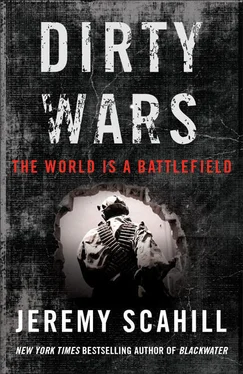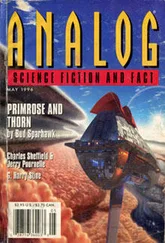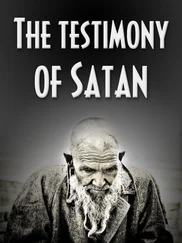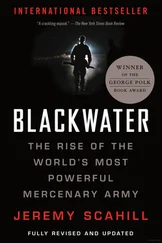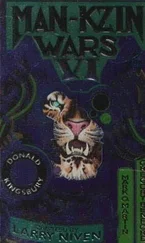Stanley “McChrystal is stubborn,” observed Fury, who served as a staff officer under him, “and no one can argue that he isn’t a man of extraordinary stamina, advanced intellect, and uncompromising dedication to his warriors, the American people, and our way of life. Personally, I don’t know a man with more stamina and stomach for the fight than…McChrystal. He sets an incredible pace, expects excellence, demands results, but most importantly he listens to the men on the ground.”
Once he took over at JSOC, McChrystal’s Ranger roots provided the inspiration for him to Ranger-ize the command. When he had run the 75th Rangers, “Terms like ‘kit’, often used by Delta and Seal Team 6 operators to collectively describe the gear, weapons, and equipment an assaulter carries was banned from the Ranger lexicon,” said Fury. “The term ‘assaulter’ or ‘operator’ was also verboten speak within the Regiment. The men wearing the red, black, and white scroll were Rangers, not assaulters and not operators. They also didn’t carry kit. They carried standard military issue equipment.” When he took command of JSOC, McChrystal believed that the various entities that made up the command should operate as a fluid team, with a “cross fertilization plan of skill sets and team building,” rather than reserving the most sensitive operations to Delta and SEAL Team 6, the Special Mission Units. “From the very beginning” of his time as JSOC Commander, “McChrystal tried to shake up the status quo of the Tier I outfits. He now owned those assaulters and snipers from the Army and Navy, and even though he completely supported creative risk taking and out of the box thinking, he quickly moved to fit their actions into an easily managed color coded box. It didn’t always work the way the General wanted though.” McChrystal believed that the Delta and Team 6 guys should work in tandem, but Fury said McChrystal quickly understood that it might not be the best approach. “It took a little while, but the General eventually recognized that the two units were apples and oranges and squaring them in that color coded box resulted in a fruit salad of conflicting skill sets, SOPs [standard operating procedures], and even mindset.” This ability to adapt became part of the McChrystal legend while he presided over the premier US counterterrorism units as the fight was increasingly going global.
But nearly invisible in the breathless media narrative of the warrior-leader’s ascent is another McChrystal—a man who in reality had seen very little action before ascending to the post of JSOC commander after the Iraq invasion. This McChrystal was a climber who had cozied up to the right people politically, whether Democrats or Republicans, as well as key figures within the military bureaucracy. In essence, he was one of the chosen few. “A third generation soldier, [McChrystal] missed the end of Vietnam while attending West Point. Graduating in 1976, he entered an Army hollowed out after the unpopular conflict in Southeast Asia,” asserted Carl Prine, the veteran military reporter. “With few wars to fight for nearly two decades, he advanced in a largely uncompetitive world, it all made perhaps even easier for him because his father—retired major general Herbert McChrystal—had been the Pentagon’s director of planning before his son took a commission.”
According to career military officers who knew McChrystal going back to West Point, he had been groomed for years to rise through the army ranks. “I like Stan very much, as a person,” said Colonel Macgregor, who was McChrystal’s roommate at West Point. But Macgregor charged that after 9/11, McChrystal had ingratiated himself with the neoconservatives, particularly Rumsfeld and Cheney. “He was someone that had made his reputation, in the Pentagon with Rumsfeld. He was someone who saw this ‘global’ Caliphate as a tremendous enemy, and kept beating the drum for that. And that endeared him to all of the key people.” The military, Macgregor said, is run under a “system that rests ultimately on a foundation that is cronyism. In other words, are you one of the boys? If they judge you to be culturally reliable, amenable, then you’re considered someone that should be advanced to the senior ranks. It’s a kind of brotherhood selection: ‘Is this man going to stay the course with us? Is he going to say whatever we tell him to say, do whatever we tell him to do?’” McChrystal, he told me, realized early on “that if he is going to advance, he’s going to have to ingratiate himself. And he does this in the Pentagon.”
Despite his stated concern about the way US military policy was alienating Muslims, McChrystal shared the political view that the United States was indeed in a war against Islam, according to a retired military officer who had known him from the beginning of his military career and went through Ranger training with him. “Boykin and Cambone and McChrystal were fellow travelers in the great crusade against Islam,” the officer told me. “They ran what was for all practical purposes an assassination program.” Macgregor said that when McChrystal was named JSOC commander, he was “given a mission under Mr. Cambone, who is Rumsfeld’s intelligence director, and General Boykin, who was Cambone’s right-hand man, to essentially go after the ‘terrorists.’ And of course we’re defining terrorist very, very broadly.” McChrystal, he said, “presided over this black world where any actions were justified against Muslims because you were fighting against the Caliphate.”
While McChrystal was reorganizing JSOC, the White House and Pentagon were demanding results in Iraq. By late 2003, the war the United States had already declared won was just beginning. The neocons’ vision for Iraq and their ill-conceived policies were fueling a nascent insurgency from both Sunnis and Shiites alike. The ground was laid during the year that L. Paul Bremer was running Iraq under the Coalition Provisional Authority.
BREMER WAS A CONSERVATIVE CATHOLIC CONVERT who had cut his teeth in government working for Republican administrations and was respected by right-wing evangelicals and neoconservatives alike. Forty-eight hours after 9/11, Bremer wrote in the Wall Street Journal, “Our retribution must move beyond the limp-wristed attacks of the past decade, actions that seemed designed to ‘signal’ our seriousness to the terrorists without inflicting real damage. Naturally, their feebleness demonstrated the opposite. This time the terrorists and their supporters must be crushed. This will mean war with one or more countries. And it will be a long war, not one of the ‘Made for TV’ variety.” Bremer concluded, “We must avoid a mindless search for an international ‘consensus’ for our actions. Today, many nations are expressing support and understanding for America’s wounds. Tomorrow, we will know who our true friends are.”
In mid-April 2003, “Scooter” Libby and Paul Wolfowitz contacted Bremer about taking “the job of running the occupation of Iraq.” By mid-May, Bremer was in Baghdad, leading the Coalition Provisional Authority.
During his year in Iraq, Bremer was a highly confrontational viceroy who traveled the country in a Brooks Brothers suit coat and Timberland boots. He described himself as “the only paramount authority figure—other than dictator Saddam Hussein—that most Iraqis had ever known.” Bremer’s first official initiative, reportedly the brainchild of Rumsfeld and his neoconservative deputy, Douglas Feith, was dissolving the Iraqi military and initiating a process of “de-Baathification,” which in Iraq meant a banishment of some of the country’s finest minds from the reconstruction and political process because party membership had been a requirement for many jobs in Saddam-era Iraq. Bremer’s “Order 1” resulted in the firing of thousands of schoolteachers, doctors, nurses and other state workers, while sparking a major increase in rage and disillusionment. Iraqis saw Bremer picking up Saddam’s governing style and political witch-hunt tactics. In practical terms, Bremer’s moves sent a message to many Iraqis that they would have little say in their future, a future that increasingly looked bleak and familiar. Bremer’s “Order 2”—disbanding the Iraqi military—meant that hundreds of thousands of Iraqi soldiers were forced out of work and left without a pension. “That was the week we made 450,000 enemies on the ground in Iraq,” one US official told the New York Times Magazine.
Читать дальше
